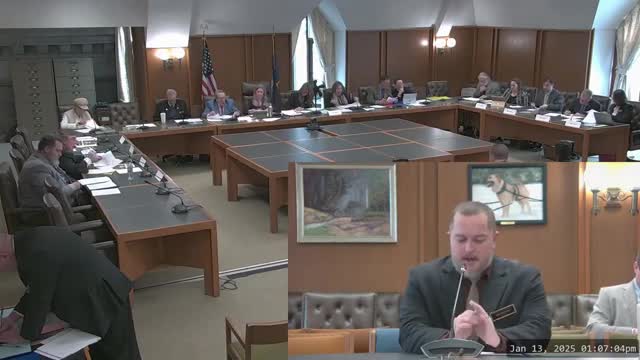Bill would let towns exempt part of residential value for residents aged 72+; municipal association warns of broad tax shift
Get AI-powered insights, summaries, and transcripts
Subscribe
Summary
Sponsor said the local option targets long‑term New Hampshire residents; the New Hampshire Municipal Association opposed the bill as written because it lacks means testing and could shift significant tax burden to other taxpayers.
Representative Belcher introduced House Bill 101 on Jan. 13, a local‑option measure that would let municipalities exempt up to $530,000 of residential valuation for residents age 72 and older who meet several residency and ownership conditions.
Belcher said the measure targets longtime New Hampshire residents who have lived in the state at least 10 years and held title on their property at least two years; the bill applies only to the residential portion of property and excludes attached dwelling units and commercial portions. He said the $530,000 cap reflects the then‑current state median home price and was chosen to limit windfall exemptions on very high‑value properties.
The New Hampshire Municipal Association (NHMA) testified in opposition, saying the measure is broad and lacks means testing; NHMA warned that if a wide population becomes eligible, the burden of exempted valuation would shift to remaining taxpayers and could be difficult for assessors and small towns to administer. NHMA also pointed to existing elderly‑exemption statutes (RSA 72:39‑a) that already provide income‑based relief and said adding a broad, untargeted option would create reporting and administrative complexity.
Representative questions focused on the choice of age 72, interactions with trusts or lifetime tenancy, and whether renters would be affected indirectly (through pass‑through rent adjustments). Belcher said the age threshold was selected after consultations to balance relief and municipal revenue impact and that the bill intentionally did not add means testing so as to be a simple, universal age‑based option. Several members noted the potential for large statewide fiscal impact: NHMA said in 2023 about $1.1 billion in elderly exemptions existed statewide, and the bill would add a new, broader mechanism with uncertain uptake.
Public testimony included municipal leaders and citizens; no committee vote was taken and members flagged the need for fiscal estimates and clearer statutory cross‑references before any further action.
